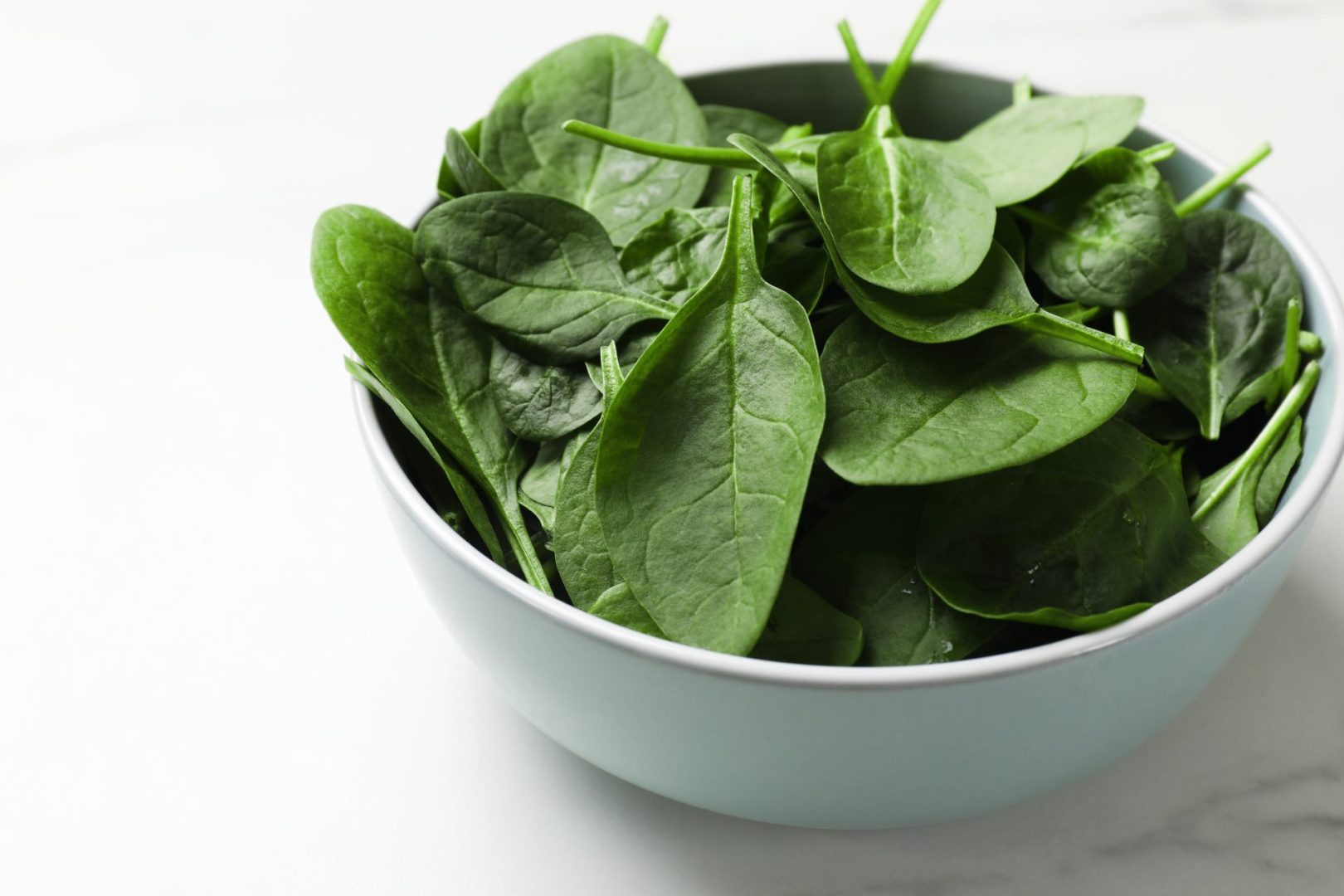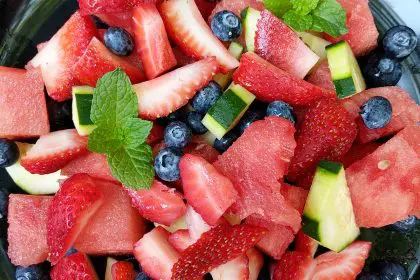A peculiar morning ritual has captured attention across social media platforms, with thousands of users reaching for a handful of raw spinach as their first meal of the day. This unexpected trend moves beyond traditional nutrition advice, focusing instead on how this humble leafy green might actually reprogram both taste preferences and gut responses when consumed first thing in the morning.
While spinach has long been celebrated for its nutritional profile, this emerging practice claims more transformative benefits: training taste buds to appreciate subtle flavors while potentially reducing cravings for sugar and processed foods throughout the entire day. As the movement gains momentum, both nutrition experts and curious followers are examining whether this simple habit truly delivers on its promises.
How the raw spinach phenomenon caught fire online
The trend gained substantial traction after lifestyle content creator Jordynn Nicholson shared her morning routine featuring raw spinach as her first food of the day. Her viral video, which has accumulated over half a million likes, emphasizes that your first food choice essentially sets a biological tone that influences subsequent eating decisions.
“What you eat first thing in the morning matters more than most people realize,” Nicholson explains in her widely-shared clip. “Your body responds differently to the very first thing you consume each day.”
The simplicity of the practice—simply consuming plain, raw spinach upon waking—has made it accessible to curious followers looking for easy habit adjustments. While some enthusiastic participants report diminished sweet cravings and increased vegetable consumption throughout their day, others remain skeptical about such significant effects from a single food choice.
The surprising science behind taste bud adaptation
- Taste receptors constantly renew themselves: According to Amanda Sauceda, nutrition lecturer at California State University, Long Beach, the concept of training taste buds has legitimate scientific backing. “Your taste receptors regenerate approximately every two weeks,” Sauceda notes. “This biological reality means they can adapt to different flavor profiles when consistently exposed to certain tastes.”
Similar to how people gradually adjust to lower sodium levels when reducing salt intake, taste buds can acclimate to appreciate the complex flavors found in vegetables like spinach. This adaptation process helps explain why foods initially perceived as bitter or bland can become enjoyable over time with repeated exposure.
However, the specific claim that spinach consumption directly reduces sweet cravings requires further examination. While some preliminary research suggests certain compounds in greens might influence taste perception, the connection between morning spinach and decreased desire for sweets throughout the day remains scientifically tenuous.
How your gut might influence your food preferences
- Microbiome messaging affects cravings: The second component of this trend involves the fascinating concept that eating patterns can reshape gut bacteria populations, which then influence food preferences through complex neurological pathways.
Nutrition expert Kim Kulp points to emerging research suggesting that diet significantly shapes the gut microbiome, which then communicates with the brain via the gut-brain axis. “Recent studies indicate that gut microbes may develop preferences for certain nutrients and communicate these preferences to their host through various signaling mechanisms,” Kulp explains.
Spinach contains thylakoids—substances that may influence hunger hormones and satiety signals. However, while some European research has investigated thylakoids’ potential to moderate appetite, conclusive evidence specifically linking spinach consumption to altered food cravings remains limited.
The psychology of morning food rituals
- Intentional eating creates momentum: Perhaps the most significant aspect of the spinach trend has less to do with the vegetable itself and more with the intention behind consuming it. Starting your day with a deliberate healthy choice creates psychological momentum that can carry through subsequent food decisions.
“Beginning your day with spinach likely signifies a broader commitment to nutritious eating,” Sauceda observes. “This initial decision can serve as a powerful reminder of your health goals and make it easier to maintain alignment with those intentions throughout the day.”
This psychological framing may explain why many participants report success with the method regardless of whether physiological mechanisms are at work. The simple act of choosing health-promoting foods first thing establishes a mindset focused on nutrition that can influence dozens of later food decisions.
Practical ways to incorporate more vegetables at breakfast
- Morning vegetable gap offers opportunity: Regardless of whether raw spinach becomes your new morning ritual, increasing vegetable consumption at breakfast addresses a significant nutritional deficit. Statistics reveal that only about 10% of Americans consume the recommended daily vegetable servings, with breakfast typically being the most vegetable-deficient meal.
For those interested in exploring this trend without committing to plain raw spinach, Kulp recommends diversifying breakfast options to include various plant foods. “Consider adding spinach to smoothies with fruit for natural sweetness, incorporating greens into egg dishes, or creating breakfast burritos loaded with colorful vegetables,” she suggests.
Other approachable options include yogurt parfaits topped with both fruit and finely chopped vegetables, whole grain toast with avocado and tomato, or overnight oats prepared with grated zucchini and carrots for added nutrition without overwhelming flavor.
What happens when you skip breakfast entirely
The spinach breakfast trend highlights another important nutritional concept: the value of eating something in the morning rather than nothing at all. Sauceda emphasizes that having breakfast—regardless of what it includes—helps establish more regular eating patterns throughout the day.
“Skipping breakfast entirely often leads to increased hunger later, potentially resulting in less mindful food choices when you do eat,” she explains. “Even if raw spinach doesn’t appeal to you, finding any breakfast option that works with your schedule and preferences offers benefits for overall eating habits.”
Research indicates that consistent breakfast consumption correlates with better diet quality throughout the day. While correlation doesn’t prove causation, the pattern suggests that morning eating establishes a foundation for subsequent food decisions that can support health goals.
Finding your personal balance with morning greens
The spinach breakfast trend highlights how social media continues reshaping how people approach nutrition, sometimes advancing practices before science fully validates them. While research hasn’t definitively proven that morning spinach recalibrates taste preferences or gut responses, many participants report subjective improvements in their relationship with food.
As with most nutrition trends, individual responses vary considerably. Some people may find that starting their day with vegetables genuinely reduces sweet cravings, while others notice little difference beyond the satisfaction of beginning with a nutritious choice. These variations reflect the complex interplay between biology, psychology, and lifestyle factors that influence eating patterns.
For those intrigued by the concept but hesitant about plain raw spinach, modified approaches might prove more sustainable. Adding small amounts of spinach to fruit smoothies, incorporating greens into breakfast sandwiches, or preparing vegetable-forward egg dishes can increase morning vegetable consumption without requiring dramatic habit changes.
The future of breakfast habits
Whether the spinach breakfast trend endures or fades, it has successfully highlighted an important nutritional opportunity: transforming breakfast from a traditionally vegetable-poor meal into one that embraces plant diversity. This shift aligns with broader nutrition recommendations emphasizing vegetable consumption throughout the day.
The trend also reflects growing interest in food as more than just fuel—as information that communicates with our bodies and potentially shapes biological responses. While the specific mechanisms proposed by trend followers may sometimes outpace scientific evidence, the underlying premise that food choices matter beyond calories aligns with current nutritional understanding.
For now, nutrition experts suggest an experimental approach: try incorporating vegetables into your morning routine in ways that feel sustainable for your lifestyle and preferences. Pay attention to how these choices affect your energy, hunger patterns, and subsequent food decisions. This personalized observation may prove more valuable than following any prescribed trend, ultimately leading to eating patterns that genuinely support your individual health and wellbeing.












